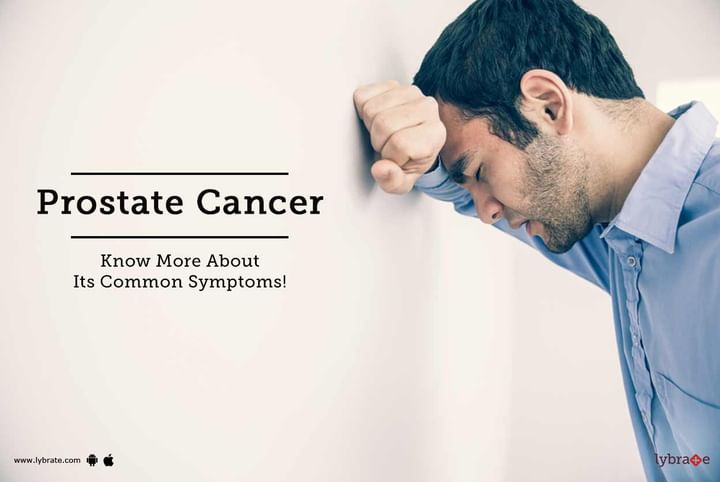Prostate Cancer - Know More About Its Common Symptoms!
The prostate gland is a small walnut-shaped organ that produces seminal fluid which carries the sperm and also provides them nourishment.
Prostate cancer is one of the most common types of prostate cancer in men. The progress of the prostate may take years and so symptoms may not be evident until it has reached an advanced stage. Also, prostate enlargement is an extremely common condition in most elderly men. This condition is known as benign prostatic hypertrophy (BPH). The symptoms produced by prostate enlargement are similar to those of prostate cancer in the earlier stages. Therefore, men may confuse the cancer symptoms with BPH symptoms and often ignore the same. For most men, BPH is part of aging and night-time visits to the bathroom are quite common.
Symptoms of prostate cancer can be clubbed into two broad categories – urinary and others.
Urinary symptoms are due to the enlarged prostate gland pressing on the urethra, the tube that carries urine from the bladder to the outside. These include:
- Burning sensation with urination
- Painful urination
- Difficulty in starting and stopping a urine stream
- Dribbling in between a stream
- Inability to control a stream, often causing urine to leak before reaching the toilet
- Increased urgency to urinate, especially at night
- A reduced flow of urine
- Lack of control over bladder
- Presence of blood in the urine, often giving it a pinkish hue
Non-urinary symptoms include:
- Presence of blood in the semen, which again may have a pinkish tinge
- Erectile dysfunction
- Delayed ejaculation
- Painful ejaculation
- Numbness in the legs, feet, or hips
In addition, there would also be generalized symptoms of cancer, including:
- Generalized lethargy and weakness
- Anemia
- Uncontrolled weight loss
- Lack of appetite
- Back pain
As noted above, these symptoms are not indicative of prostate cancer. Even prostate infection or in older men prostate enlargement can cause these symptoms. Therefore, it is essential to correlate these symptoms with risk factors and clinical diagnosis.
Risk factors include age, family history, poor diet choices, higher testosterone levels, prostatic neoplasia, and presence of BRCA1 or BRCA2 genes.
Clinically, when a patient experience any of the above symptoms, the doctor would need to confirm the diagnosis via:
- Digital rectal examination, which will confirm that the prostate is enlarged indeed
- Chemical tests to check for prostate-specific antigen (PSA) which is often increased with any disease of the prostate
- A biopsy to identify the presence of cancerous cells
A combination of clinical presentation, lab, and imaging will help in confirming the diagnosis. Earlier the diagnosis, better is the prognosis.



+1.svg)
